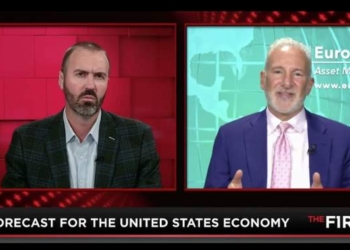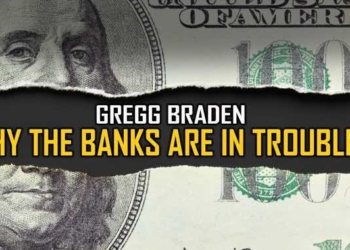
If you need quick money, a personal loan might seem like the right answer. It allows you to get a huge amount of money within a couple of days. However, before you jump in headfirst, you ought to understand how these loans work.
Whether you’re looking for funds to consolidate debt, pay for home repairs, or pay major medical bills, getting a personal loan can be an incredible idea. In fact, some lenders don’t even ask how you intend to spend the money.
You can obtain a personal loan from the bank, an online lender, peer-to-peer lender, or a credit union. As compared to mortgage or auto loans, personal loans are much easier to get, but that doesn’t necessarily make it less important to shop around.
Use these tips to ensure that you choose the best personal loan for your situation.
Get Pre-Qualified
Don’t be swayed by the advertised rates on various bank websites as well as marquee signs. It’s only the most qualified borrowers who actually get these rates. Therefore, try finding out what terms the bank you’re considering will give you.
Most banks perform a credit check during the pre-qualification process. But since this is usually a “soft’ pull on your credit report, it doesn’t usually affect your credit score like a “hard’ inquiry. In fact, soft inquiries won’t show up on your credit history. Lenders can simply check your credit history to determine if you qualify for the requested loan amount or not.
Of course, the pre-qualification process might sometimes feel like an official loan application since you’ll be required to submit your income, personal identifying information, monthly debts, as well as employer’s information. However, this doesn’t usually result in official approval.
Typically, lenders will send you an offer featuring all the conditions you should meet if you opt to take up the loan. So, use these offers to compare different options and then choose something affordable and perfectly suited to your financial needs.
Once you choose a particular loan, you’ll be required to finalize the process by accepting the provided terms. This often includes proof of identification, income documentation, and authorization to conduct a “hard inquiry” on your credit.
However, it’s important to note that the performance of this hard pull on your credit might cause your credit score to drop a few points. So, be keen to choose your offer carefully to avoid multiple checks on your credit report.
Compare the Existing APRs
The interest rate your lender quotes isn’t always what you’ll end up paying when you carry the loan. Typically, the APR provides a better reflection of the loan’s actual cost. Most banks charge closing fees plus other loan-related fees, which end up making the interest rate much higher.
The APR often includes the original fee, processing fee, as well as document preparation fees.
Ask your lender what fees they charge for a personal loan since different banks or lenders charge different fees. And sometimes the charges depend on your situation-people with high credit-scored plus lower debt ratios might pay fewer fees than those with poor credit scores and high debt ratios.
Generally speaking, the APR incorporates the interest rate plus the charges for obtaining the loan. It doesn’t comprise any fees related to servicing your loan, though. Any fees you pay after closing can significantly increase the cost of your loan- and this could include NSF charges as well as late payment charges.
Whilst you shouldn’t primarily focus on the interest rate alone, having all the details at your disposal helps. When it comes to personal loan applications, the law requires lenders to provide their APR terms, so it’s easy to compare their charges with other loans.
The Fees
Personal loans usually have many fees, which can end up breaking your bank, especially if you aren’t familiar with them. These include the annual fee, late repayment fee, NSF charges, as well as the check processing fee.
Though it’s quite uncommon nowadays, check out the prepayment penalty, too. It may sound absurd, but this fee usually applies when you pay off your loan too early. And it encourages borrowers to repay the loan over the full term, enabling the lender to collect more interest. Paying off your loan early, makes the lender lose out on future interest, that’s why some lenders compensate it with a prepayment fee. However, most states prohibit such penalties, and many creditors have stopped charging them. But it doesn’t hurt to make inquiries and read the fine print.
Learn How You Can Save Big On Personal Loans
Signing the loan agreement and accepting the money gives you a new monthly liability. Check the paperwork closely to see how much interest you’ll be required to pay over the loan’s life and how long it will take to completely pay it off.
If you don’t have a prepayment penalty, however, there are certain things you can do to save on interest:
Payments
Avoid charges associated with the processing of credit checks. Pay more than the minimum amount you’re required to pay every month. Make automatic payments and get significant discounts. Make lump-sum payments whenever you can. Do the legwork before taking up a personal loan. Personal loans aren’t always a one-size-fits-all solution. Simply because your neighbor obtained a great personal loan from the bank doesn’t necessarily mean you will get one, too. So, take your time to do your research and find the personal loan that perfectly fits your financial situation. Go for lenders who understand your explicit needs. Get your unsecured loan from a reliable lender and sort out your financial issues today.
The Bottom-Line
Borrowing is not a crime. So, don’t let a financial crisis depress you. Get a personal loan and keep pushing. However, it’s important to secure the best personal loans. The above information contains the tips and tricks of securing the best personal loans on the market. The bottom line is to get a loan you can pay off without any difficulties. Make a wise decision today.














